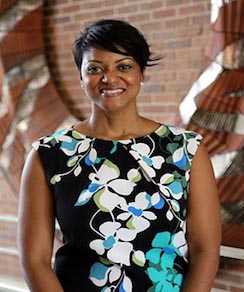For the past four years, my colleagues and I have been engaged in a mixed methods investigation of developmental education reform in Florida. As I reflect on this project, multiple professional experiences at the community college in the formative years of my career helped shape my prior professional practice as an administrator but more recently as a faculty member influenced my perspective on community colleges in general and my approach to research on these institutions.
My first exposure to a community college was as a transient student taking summer courses at North Harris County Community College in Texas. In the classroom I remember seeing students of all races and ages, most of them much older than me at 19. Back then I had no idea that community colleges had a democratizing mission centered on ensuring access to higher education for non-traditional and other underrepresented student populations. A few years later when offered an opportunity to create a service-learning and volunteerism program at Tallahassee Community College (TCC) in Florida, I thought back to my brief stint at community college. Upon arrival at TCC, I was struck by the differences in the student body compared to that of the community college I attended. Given TCC’s proximity to two state universities, Florida State University (FSU) and Florida A&M University (FAMU), the student body reflected more recent enrollment trends, with more than one-third of the students enrolled being younger than 21 years old (American Association of Community Colleges, 2016). Despite the number of students who were more traditional college-age, there was still a significant number of non-traditional (i.e., older) students on campus. These varied student groups represented diverse needs.
The required one-semester internship extended to an academic year and further when I took on the role as the inaugural director of the Office of Student Volunteerism (OSV). Armed with new knowledge of traditional student development and the mission of the community college, I wanted to provide programs and services that students might find at FSU and FAMU. Over the next five years, OSV offerings expanded to include a formal service transcript attached to the student academic transcript, an international service trip, and helping faculty identify community agencies with whom to partner for service-learning placements. Together with other college-wide student initiatives, these opportunities enhanced student engagement on campus and in the community and connected academic and student affairs in more intentional ways. To round out my traditional student affairs work, I also taught study skills (SLS) and developmental education courses, served as an academic advisor, and facilitated life skills workshops for student athletes at TCC. These traditionally academic affairs functions provided a more holistic view of not only TCC, but also of community colleges in general. This understanding would prove essential in my work on developmental education reform.
In 2013, the Florida legislature passed Senate Bill 1720 (SB 1720), exempting recent graduates from Florida public high schools and active duty military from developmental education courses and requiring institutions to offer an array of delivery methods for developmental education courses. Additionally, institutions were required to use multiple measures to assess college readiness, expanding advising services provided by the colleges. Our longitudinal examination began with a content analysis of the institutions’ implementation plans for the reform and a survey of institutional leaders. Next, we conducted site visits of Florida College System institutions and annual surveys of institutional leaders. My intimate knowledge of TCC has been instrumental in our research on developmental education reform. Practical knowledge of faculty loads and advising procedures and an understanding of the variety of student populations at TCC informed our approach for the site visits. To date we have visited 17 of the 28 state colleges and conducted 160 focus groups and individual interviews with 891 campus presidents, administrators, faculty, advisors, other campus personnel, and students (see Hu et al., 2015, 2016).
I am most struck by the responses we receive from campus personnel thanking us for including their voices in our research. The faculty and advisors, in particular, expressed appreciation for the opportunity to contribute to the discourse after being marginalized in the policy development process. At times, once campus personnel learned of my previous experiences at TCC, there was a palpable energy shift in the room. The rapport built from this commonality with campus personnel allowed us to elicit authentic responses to our questions about their perceptions of the legislation and ways they may have changed their teaching or advising to accommodate both students and the policy changes.
As we continue to explore the long-term implications of this reform, particularly for diverse student populations, our goals remain to present a clear picture of SB 1720 from the perspectives of those concerned about and affected by the reform and provide concrete and credible evidence to improve policies and practices to promote student success in postsecondary education.
Tamara Bertrand Jones, Ph.D. is an associate professor and program coordinator in Higher Education, and the associate director of the Center for Postsecondary Success at Florida State University.
References
- American Association of Community Colleges (2016). 2016 Community College Fact Sheet. Washington, DC: Author.
- Hu, S., Bertrand Jones, T., Brower, R., Park, T., Tandberg, D., Nix, A., Rahming, S., & Martindale, S. (2015). Learning from the ground up: Developmental education reform at Florida College System institutions. Tallahassee, FL: Center for Postsecondary Success.
- Hu, S., Bertrand Jones, T., Brower, R., Nix, A., Martindale, S., Rahming, S., Park, T., & Tandberg, D. A. (2016). Learning to adapt: Lessons from the second year of developmental education reform at Florida College System institutions. Tallahassee, FL: Center for Postsecondary Success.




Leave a comment